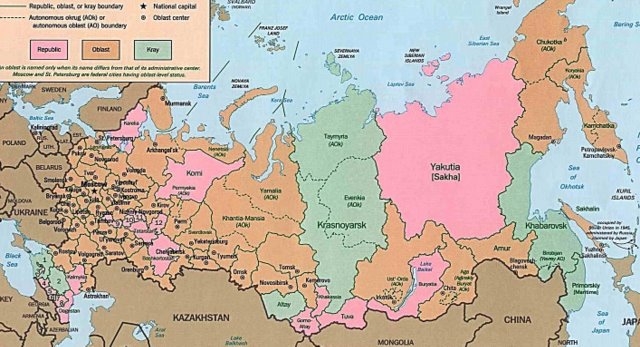The Russian Federation is the largest state in the world and covers almost one eighth of the earth’s land surface. Russia is an ethnically diverse country with over one hundred different indigenous peoples who speak different languages and have different cultures. Many have little in common other than the fact of living in the Russian Federation and the legacy of having formed part of the Russian and the Soviet empires. In Russian, there is a distinction between ‘russkii’- meaning ethnically Russian, and ‘rossiyskii’ – meaning of the Russian Federation. This distinction does not exist in the English language – the word ‘Russian’ refers not only to ethnic Russians, but to all other subjects of the Russian Federation.
There is little information about these ethnic minorities outside of the Russian Federation. Much of the Russian literature about non-Russian peoples of the Federation has political undertones. Often, Russian colonisers and ethnographers have identified, classified and labelled these peoples, in some cases constructing a national identity which previously did not exist. Since the early nineties there has been a revival of interest in the history, languages and cultures of these peoples, but the information available is often limited.
During the two years I spent in Russia (2001-2002 and 2007-2008), I tried to collect information about the ethnic diversity of this vast country. I spent some time in the National Library and the Ethnographical Museum in St Petersburg, and travelled around the country. This is a summary of the 'snippets' of information I picked up along the way.
